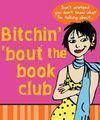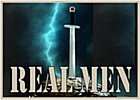Blog Home ▼

 Do book clubs ruin that mysterious quality inherent in the act of reading—being transported to another world?
Do book clubs ruin that mysterious quality inherent in the act of reading—being transported to another world?
A New York Times writer says she envies her 11-year-old daughter’s ability to melt into whatever story she’s reading. The author, an analytical reader, says she longs for her girlhood when she could completely lose herself in the magic of a book.
I am not sure when or exactly how I started merely reading books instead of living in them…. But I suppose…the byproduct of growing up is that I formed too many opinions of my own to be able to give in wholeheartedly to the prospect of living inside someone else’s universe.
—”I Wish I Could Read Like a Girl,” Michelle Slatalla, New York Times, 1/1/09
By “merely reading,” I think Slatalla means reading with critical awareness rather than pure enchantment. But for me reading and thinking are synonomous. Opinions, life experiences, and achieved wisdom end up enriching the reading experience.
That may not be true for everyone. And then again, there are plenty of times I like to “just read” without doing the heavy lifting.
Questions for Book Clubs
- Does belonging to a book club require you to read with a more analytical, perhaps even skeptical, eye? If so, does that detract from your reading pleasure?
- Have you ever come away from a book club meeting thinking differently about a book because of the discussion?
- Do you end up reading on your own . . . just for fun?
 It’s said we live in an age of irony—irony is in; sincerity is out. It’s the importance of NOT being earnest that matters.
It’s said we live in an age of irony—irony is in; sincerity is out. It’s the importance of NOT being earnest that matters.
What is irony? Think Seinfeld—”Whatever…,” “Duh…,” “Yeah, riiiight”—all said with an arched eyebrow, a knowing wink. The “ironic stance” is detachment.
When it comes to fiction, writers, critics, and readers adore irony—most recently, Jonathan Franzen’s Corrections, Gary Shteyngart’s Absurdistan, Zadie Smith’s On Beauty, and Helen Fielding’s Bridget Jones. Even classics like Pride and Prejudice are plumbed for their irony.
Jane Austen’s brand of irony derives from her subversive wit, which undercuts class structure and decorum. It’s a type of irony in vogue today: one that exposes hypocrisy and punctures holes in pretensions, beliefs and institutions that no longer stand for truth or meaning.
But literary irony is far more complex. It’s been around since Oedipus—he who unwittingly marries his mother; who searches for a king’s murderer, only to find himself; and who attains inner “sight” only when blind.
Writers from Sophoclese on down have used irony because it mimics life. Though irony takes numerous forms, the most common definition is an opposite reality from what is intended or expected: the king brought low; the underdog raised up; best-laid plans gone awry.
To learn more about irony, see LitCourse 8—based on Edith Wharton’s wonderful short story “Roman Fever.” The courses are short, free, and fun! (And that’s not ironic.)
 This article in the New York Times dishes out some pretty good gossip on book clubs—it turns out, not everyone’s thrilled about the club they belong to. No! Really?
This article in the New York Times dishes out some pretty good gossip on book clubs—it turns out, not everyone’s thrilled about the club they belong to. No! Really?
Come on—didn’t we learn way back in childhood the maxim, ”you can’t please all the people all the time”? Why would book clubs be an exception? —
Common complaints
Book Selections. Not everyone likes the reading list. Some like classics, some chick-lit; others nonfiction or sci-fi. It’s not easy to satisfy divergent tastes.
Discussions Problems. Some members complain about too much socializing or a lack of substance; others feel the discussions are too academic, taking the fun out the whole exercise.
Hosting Competition. Hosting can become a game of one-upmanship—so much so that some members put hosting right at the top of their stress index. Where’s the fun in that?
Some advice
If you’re starting a club, set some guidelines at the outset about the types of books you want to read and the nature of discussions. (See LitLovers tips on How to Start a Book Club.)
If you’re in an existing club, conduct a survey, formal or informal, to find out if your club is meeting members’ expectations. What types of books do members like? What kind of discussions? How much time devoted to social vs. book talk? What kind of food and who cooks?
If you’re one of the unhappy ones, feel free to move on without too much guilt…and without too many hurt feelings. You might simply tell your members that you want to try a different approach. Nonetheless, no matter how diplomatic everyone is, leaving is always hard. But be brave.
 Hello…ello…lo…….. Are book clubs like echo chambers—reading and talking about the same books? Joshua Henkin (Matrimony) worries that we are: you know, books like Water for Elephants; Eat, Pray, Love; Kite Runner. We’re all reading them and reviewing the same ones.
Hello…ello…lo…….. Are book clubs like echo chambers—reading and talking about the same books? Joshua Henkin (Matrimony) worries that we are: you know, books like Water for Elephants; Eat, Pray, Love; Kite Runner. We’re all reading them and reviewing the same ones.
Here’s how Henkin puts it:
There are a lot of great books out there that people don’t know about . . . . [At the same time] fewer books have more and more readers. . . . For that reason, it has become harder for all but a handful of books to get the attention they deserve.
—Books on the Brain, 4/29/08
Henkin makes a strong case. Pity new authors trying to get their books noticed. It’s got to be disheartening.
Nonetheless, there’s something delightful that so many of us are on the same page. The book club movement is like the city that promotes a single book for its residents to read. Meet someone at the water cooler, at the mall, on the bus…and a conversation gets started. “Hey, how do you like Eat, Pray, Love? Have you read such & such yet?” It’s suddenly easy to find commonality, even with total strangers.
And while Henkin is right—many more authors deserve our attention—perhaps book club lists have more variety than expected.
Take a look at the list below. It’s a sampling of titles that have cropped up recently on LitLovers website—some are mentioned by our featured book clubs, others come from people who email me to request a reader’s guide. It’s an interesting list.
Chimimanda Ngozi Adichie — Half of a Yellow Sun
Murray Bail — Eucalyptus
Lynne Cox — Grayson
Ivan Doig — Whistling Season; the McCaskill trilogy
Jennifer Cody Epstein — The Painter from Shanghai
Dorothea Benton Frank — Sullivan’s Island
Victor Fankl — Man’s Search for Meaning
Tana French — In the Woods
Beth Gutcheon — Good-bye and Amen; Leeway Cottage
Jim Harrison — Returning to Earth
Kent Haruf — Plainsong; Eventide
Robert Hicks — Widow of the South
Paulette Jiles — Enemy Women
Lesley Kagen — Whistling in the Dark
Aryn Kyle — The God of Animals
Sinclair Lewis — Main Street
J. Nozipo Maraire – Zenzele: Letter for My Daughter
Roland Merullo — Breakfast with Buddha
David Mitchell — Ghostwritten
John O’Hara — Appointment in Samarra
Tom Perotta — Little Children; The Abstinence Teacher
Nancy Pickard — The Virgin of Small Plains
Anthony Powell — Dance to the Music of Time
Richard Powers — The Echo Maker
Reynolds Price — Kate Vaiden
Tatiana de Rosnay — Sarah’s Key
Mary Doria Russell — The Sparrow
Helen Santmyer — And Ladies of the Club
Carol Shields — Stone Diaries; Unless
Ahdaf Soueif — The Map of Love
Nancy Turner — These Is My Words
Larry Watson — Sundown, Yellow Moon; Montana 1948
See all posts on Joshua Henkin’s book club essay.
 English—what a great language to have fun with! Below are homophones, words that sound alike but have different meanings. (I’ve taken a few liberties here.) My thanks to Gordon Higgins. He’s too, too clever.
English—what a great language to have fun with! Below are homophones, words that sound alike but have different meanings. (I’ve taken a few liberties here.) My thanks to Gordon Higgins. He’s too, too clever.
Don’t You Just ♥ Words?
She wore two too many tutus to dance.
two | too | tutu | to
It's what I do for a living. Too, too sad. Anyway, hope you’ll join in the fun. These are mine. Can you find others . . . or come up with your own. It’s good exercise for the brain—honest.
 Let me tell you how easy it is to get over your attachment to books—the kind with paper pages? Once you hold this gorgeous book-machine (yes, machine) in your hand, you won’t want to let go. Ever.
Let me tell you how easy it is to get over your attachment to books—the kind with paper pages? Once you hold this gorgeous book-machine (yes, machine) in your hand, you won’t want to let go. Ever.
It’s surprisingly easy on the eye—so you can read for hours, even even bump up the type size. It’s easy to flip from page to page and back again. You can bookmark pages, highlight passages, even make notes! You’re automatically connected to Amazon, so with a click of a button, you buy your books—and they’re downloaded within a minute. Ooooooooh… I’m in love!
But dear librarians, here’s the question: what will you do? If our books become electronic, what’s the future for libraries? I know librarians all over the country are asking this very question—I read your blogs. (Wow, do you guys blog!) And what will become of bricks-and-mortar book stores?
Oh, how did I get my Kindle? After all, they’re not cheap. Well, my dear friend Lynne presented it to me as a gift! Give her a call. Maybe she’ll take a liking to you and get you one, too. Here’s her number: 202-555-1234. Good luck.
 Cheap shot, that title. I suspect there are a healthy number of men who do join book clubs — in fact I read about one just recently.
Cheap shot, that title. I suspect there are a healthy number of men who do join book clubs — in fact I read about one just recently.
The Second Monday Men’s Book Group in Melbourne, Florida, is featured in the Nov-Dec ’08 issue of Bookmarks magazine. Funny story—before they formed their group, they thought they’d see if they could join one of their wives’ book clubs. Here’s what happened:
We brought it up. They shot it down. We’d change their dynamics by merely being present—and what would happen if we opened our mouths?
Which brings to mind the joke: If a man is alone in the forest and he speaks ... is he still wrong? Apparently so. Anyway, the guys decided to form their own club, now numbering around 7.
In an earlier post, I wondered what kind of books men read. Well here’s how the Second Monday group weighs in:
Nonfiction
Tuxedo Park (radar) | Cadillac Desert (dam-building) | Soul of a New Machine (computers) | Jungle (meat packing) | Washington’s Crossing (history) | American Theocracy (politics) | Surely You’re Joking, Mr. Feynman (physicist’s memoir) | Everglades, River of Grass (history) | West With the Night (female aviator’s memoir) | Why Americans Hate Politics (politics).
FictionAmsterdam by Ian McEwan | Saturday by McEwan | Master and Commander by Patrick O’Brien | My Antonia by Willa Cather | Foundation by Isaac Asimov (sci-fi) | Maltese Falcom by Dashiell Hammett | Big Sleep by Raymond Chandler | Yiddish Policemen’s Union by Michael Chabon | Suite Francaise by Irene Nemirovsky | The Kite Runner by Khaled Hosseini.
Observations?
- Heavy on non-fiction—50%.
- Preponderance of male writers—80%.
- Similar novel choices to female clubs—along with sci-fi (Asimov) and action-adventure /historical fiction (O'Brien).
Question: Is this a typical list for men’s book clubs—with 50% of the books nonfiction and 80% of the writers male?
Also, see So…Where Are the Guys? — an earlier post about men and book clubs.

Question: Can you really say you’ve “read” a book when you’ve listened to it? Does listenting count as “reading”—and does it work for a book club discussion?
Answer: Well, at least we get through the book! In a busy life, that counts for something.
On the other hand. . .we’re usually multi-tasking when listening, which means the book doesn’t have our full attention. Second, we read at our own pace: pause, ponder, re-read, or jot a note. Hard to do with audio while driving. Third, in a book discussion, it’s easy for everyone to turn to a particular passage on a particular page. Not so easy with audio.
Two other considerations: purists say a narrator’s voice can unfairly influence how we experience a work. And finally, it turns out our memories work better when reading rather than listening. That’s especially true for adults and older students (though the research isn’t definitive).
So not being a purist, my advice is to enjoy audio books whenever you feel like it—but read the printed version when it comes to your book club selection. (See LitLovers Discussion Tips.)
 When is a rose not a rose? When it’s a symbol. Do authors create literary symbols on purpose? Or are symbols just something English teachers invent to torment students. Could be . . . but here’s a little story.
When is a rose not a rose? When it’s a symbol. Do authors create literary symbols on purpose? Or are symbols just something English teachers invent to torment students. Could be . . . but here’s a little story.
—A Little Story—
I once wrote a poem for my English class about the beauty of a single rose. Understand when I tell you it was insipid.
But the teacher singled it out! It was, she said, a fine example of symbolism: the beauty of the single rose was how she viewed her students. In the collective we had little distinction, but individually we attained a singular beauty. Friends, I’d written a masterpiece . . . and I hadn’t a clue.
My grand inspiration had come from a cheap plastic rose stuck in my pencil holder, and I just happened to hit on the thing as my eye wandered around the room. The beauty of individualism wasn’t anywhere on the radar.
Yet that's exactly what author William J. Kennedy (Ironweed, 1983) was getting at when he wrote in a New York Times piece that the source of a writer's creativity doesn't . . .
rise up from his notepad but up from the deepest part of his unconscious, which knows everything everywhere and always: that secret archive stored in the soul at birth, enhanced by every moment of life….
—William Kennedy, “Why It Took So Long,”
New York Times, 5/20/1990
Writing is a mysterious process, and symbols often spring from the unconscious, relfecting something embedded within an author’s psyche.
In other words, that single rose of mine could just as easily have seemed lonely and forlorn. Or I might have written that its fragrance would gain potency as part of a bouquet. But it turns out I enjoy being alone or with friends one-on-one. And I avoid large groups. So perhaps even as a teen that rose had subconscious resonance.
So, no, authors don’t always intend their symbols; symbols often reflect something deep within. And readers? Our own insights into a work spring up from deep within us, as well.
If you want to learn more about symbolism—why authors use them, how they contribute to a work of fiction—take our LitCourse 9. It’s short, free, and a lot of fun.
 A little fun: have you noticed—pretty hard not to—all the books entitled Somebody’s Daughter? Recognize any of these?
A little fun: have you noticed—pretty hard not to—all the books entitled Somebody’s Daughter? Recognize any of these?
The Abortionist’s Daughter The Memory Keeper’s Daughter
The Bonesetter’s Daughter The Optimist’s Daughter
The Courtesan's Daughter The Pirate’s Daughter
Galileo’s Daughter Vermeer’s Daughter
Just how many daughterly titles are out there? Turns out, about 360—titles like “Somebody’s Daughter” or “Daughter(s) of the Something-or-Other.” Here's the full list.
So why this fixation on female offspring—a marketing scheme to appeal to women? But one title is nearly 200 years old. It also turns out that Balzac, Dumas, Hawthorne, D.H. Lawrence, Orwell, Walter Scott, and Zola were in on it, too. Did they even have marketing firms back then?
D.H. Lawrence’s short story, “The Horse Dealer’s Daughter,” suggests the young woman of the title inherited her father’s personality and will dominate her fiance as her father did his horses—a title that suggests a belief in familial determinism. (See LitCourse 9.)
Okay, one down, but that leaves 359 titles unexplained. Any theories?
Site by BOOM
![]()
LitLovers © 2024
